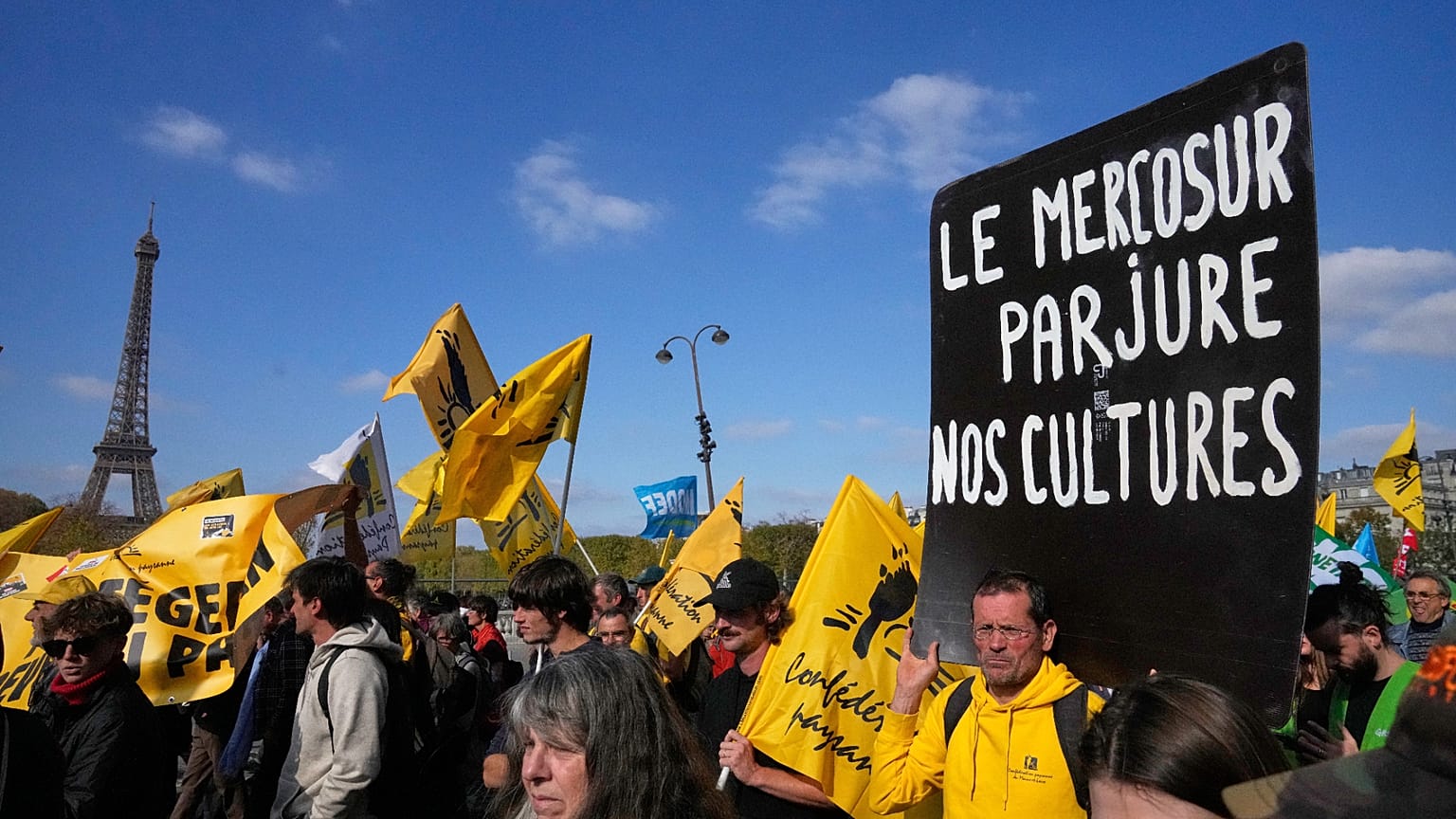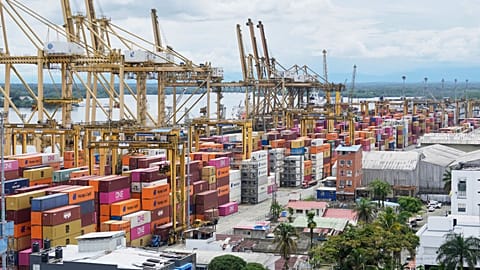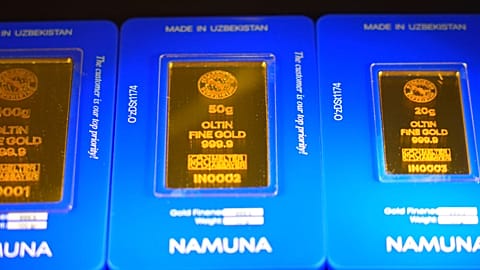After showing more flexibility on the trade agreement with Latin America, French President Emmanuel Macron has renewed his opposition to the text. But he is not assured of securing enough support in Brussels to block it.
A resolution opposing the Mercosur trade agreement is set to be voted on Tuesday in France in the parliamentary committee on European affairs at the National Assembly.
 ADVERTISEMENT
ADVERTISEMENT
 ADVERTISEMENT
ADVERTISEMENT
Facing growing domestic opposition, French President Emmanuel Macron has limited room for manoeuvre when it comes to the Mercosur trade agreement, which includes Argentina, Brazil, Paraguay and Uruguay, and Brussels wants to sign before the end of the year.
The resolution, signed by 103 French MPs, calls on the French government to refer the matter to the EU Court of Justice, arguing that the trade deal violates EU treaties.
According to the MPs, the European Commission’s decision not to submit the trade part of the agreement to national parliaments for approval is illegal.
It comes a week after Macron met with French farmers and gave them insurances he would not back the deal in Brussels.
The president “was extremely clear,” reported French Agriculture Minister Annie Genevard after the meeting on 12 November: “France cannot approve at this stage the draft agreement with the Mercosur countries because this draft agreement does not protect the interests of farmers.”
However, the French President softened his position after the Commission proposed attaching a strengthened safeguard clause to the agreement to control any disruptions to the internal market resulting from an increase in imports of products from Latin America.
The Mercosur agreement aims to create a free trade area across the Atlantic by eliminating tariffs. But France has opposed this deal for years citing the risk of competition distortion with European agricultural products and environmental concerns.
On a trip to Brazil on 7 November, Macron seemed to take a step toward the agreement.
“I am rather positive, but I remain vigilant because I also defend France’s interests,” he said before adding that France had been “heard by the [European] Commission” on several of its concerns.
A blocking minority against the deal is uncertain
If France were to oppose the agreement, it would need to move quickly to form a blocking minority in the Council, the institution that brings together the EU member states.
A blocking minority requires at least four member states representing 35% of the population. And it is not clear that he has the numbers.
So far, Hungary and Poland has said it opposed the deal, while Ireland, Austria and the Netherlands, say they wait for the text of the agreement to be fully translated before deciding. Translation work should be finalised on 11 December.
The key country is Italy and a change of heart from Rome could be game changer.
Since the President of the Commission Ursula von der Leyen visited Uruguay in December 2024 for the political conclusion of the agreement, Rome has been cautious.
EU trade commissioner Maroš Šefčovič travelled to Italy at the end of October and gave assurances that the deal will not harm Italian farmers.
Supporters of the agreement, led by Germany and Spain, argue that it is necessary in the face of Chinese competition in the region and the tariffs imposed by the Trump administration on EU exports to the US.
But the issue is far from settled in the EU Parliament as well.
A group of 145 MEPs submitted a resolution last Friday also calling for a referral to the EU Court of Justice. If it were adopted by all MEPs at the end of this month, the referral would suspend the ratification process of the agreement.

















